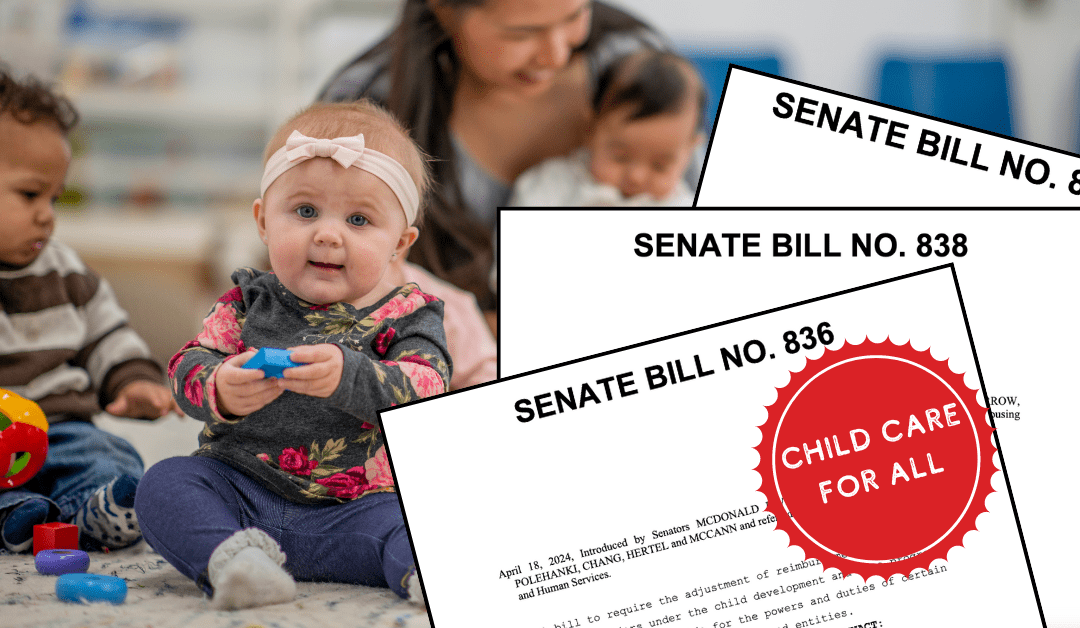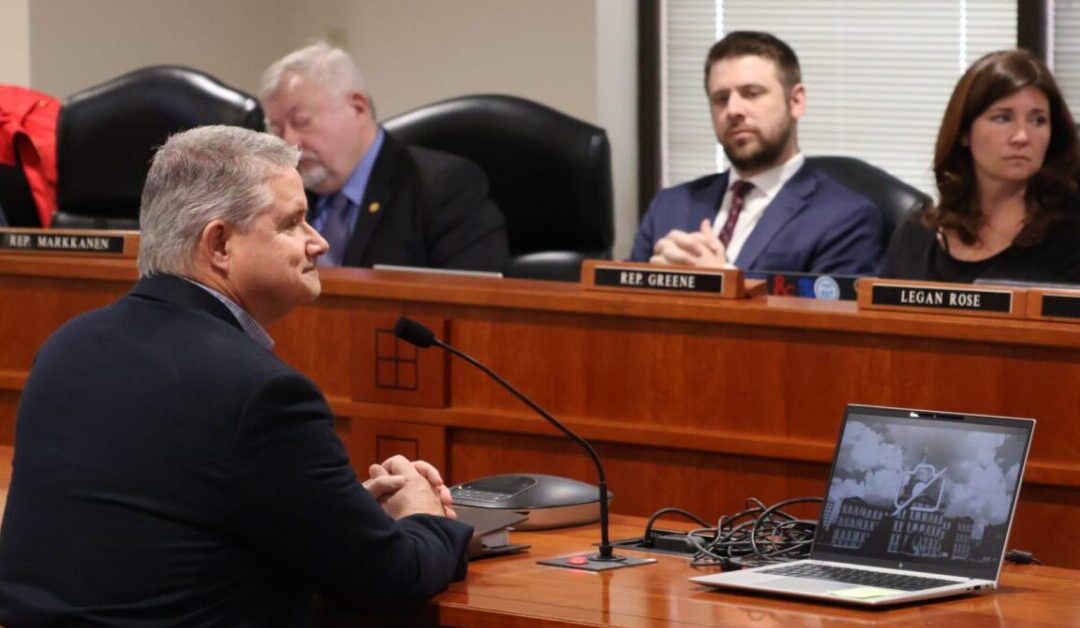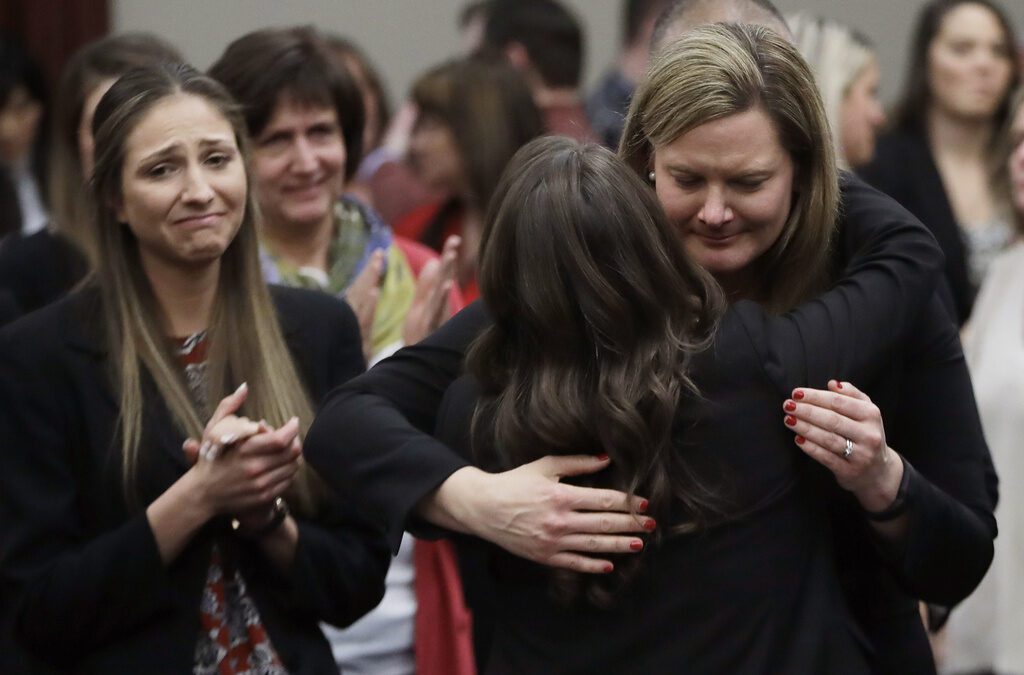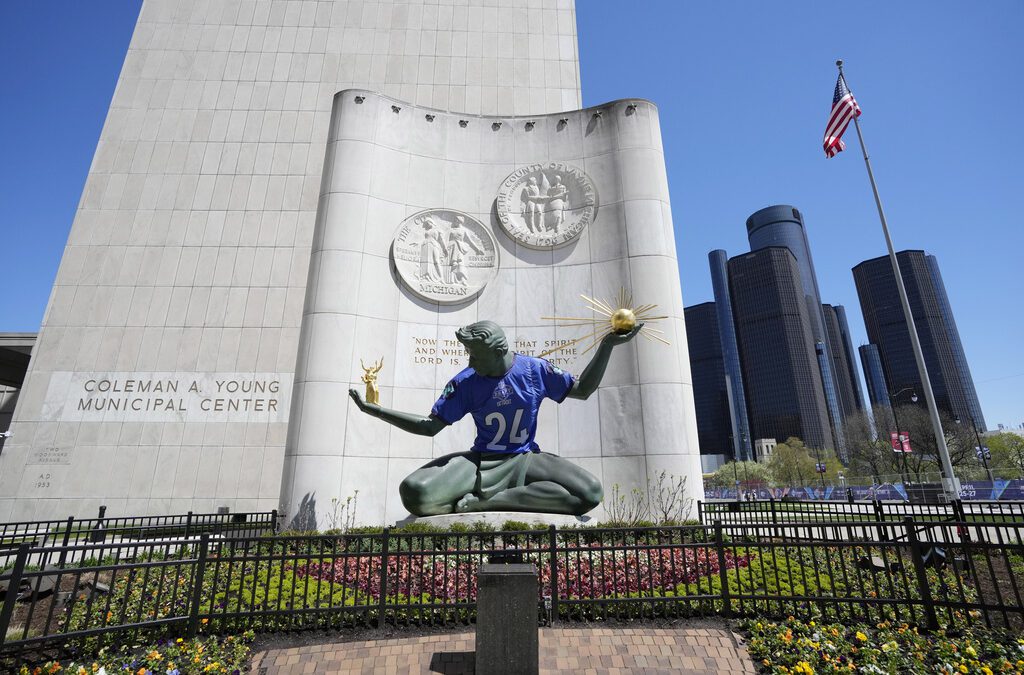
A Domino’s Pizza delivery hurtles past Lansing City Hall, which closed for the day due to a snowstorm, Jan. 28, 2019. (Michael Gerstein/Michigan Advance)
BY LAINA G. STEBBINS, MICHIGAN ADVANCE
MICHIGAN—Tucked away between Gov. Gretchen Whitmer’s headline-grabbing spending proposals for education, infrastructure and more on Wednesday lies a potentially historic win for local governments.
Whitmer’s $79 billion budget proposal, her fifth in office, recommends a significant increase totaling 10% in statutory revenue sharing payments in Fiscal Year 2024 as compared to the current fiscal year that ends in October.
This would come out to $1.1 billion for constitutionally required revenue sharing payments and $612.5 million for all statutory revenue sharing payments.
The process of revenue sharing provides important financial resources for local governments, so counties, cities, townships and other municipalities can pay for services like public safety, parks and road maintenance.
More revenue sharing means more money to local units of government, also allowing them to pay down debts while still being able to fund important resources.
“This proposed budget builds on recent investments in communities and efforts to improve quality of life,” said John LaMacchia, director of state and federal affairs for the Michigan Municipal League (MML), which represents all 522 cities and villages in the state and several urban townships.
“I think it really shows a commitment by the administration to the needs that are at the local level. Those dollars will be impactful, whether that’s investing in our parks and rec system, improving our public safety roles in the community, or even looking at some of the legacy costs that we need to pay down,” LaMacchia added.
“So based on each individual community, they will be able to address their individual needs as a result of this.”

Article IX, Section 10 of the Michigan Constitution currently holds that 15% of the 4% portion of Michigan’s sales tax collections are used exclusively for assistance to cities, villages and townships. In other words, constitutional revenue sharing for local governments depends solely on sales tax revenue from the state and is not subject to the governor or Legislature’s discretion.
That portion will now be roughly $1 billion for payments made to local municipalities, representing a $62 million increase over the current fiscal year.
The payments Whitmer recommends for local municipalities in statutory revenue sharing represent an $89 million total, or overall 17% increase.
Within those dollars include a 10% increase—5% ongoing and 5% one-time—in general statutory revenue sharing as compared to the current fiscal year; and a 7% increase—2% ongoing and 5% one-time—specifically for local public safety initiatives for both counties and cities, villages and townships.
Neil Sheridan, executive director of the Michigan Townships Association, praised Whitmer’s budget plan as a support for “thriving communities.”
“We are encouraged that the governor’s historic budget proposal recognizes the critical need to support townships and other local governments, with proposed increases in City, Village and Township revenue sharing, including for public safety, as well as investments in infrastructure and affordable housing,” Sheridan said.
“ … We stand ready to work with the governor and Legislature throughout the budget process to ensure that townships receive the funding necessary to provide the needed services to support their residents and entire community.”
Increased funding for local municipalities would be a turnaround from cuts in the past. For instance, Whitmer’s predecessor, GOP former Gov. Rick Snyder, proposed in his first budget in 2011 significant cuts to revenue sharing for local units of government.

Now, with the state bouncing back from COVID-19 struggles with more revenue than anticipated and a $9 billion state surplus, Whitmer has said that she wants to prioritize important and overdue investments.
“A 17 percent boost in county revenue sharing is a great indicator that Gov. Gretchen Whitmer and her team recognize the need to reinvest in local public services, which our members, as Michigan’s original regional governments, provide,” said Stephan Currie, executive director of the Michigan Association of Counties.
“The fact that this and so many of MAC’s 2023 priorities, such as investments in juvenile justice, public health and foster care, are reflected in the governor’s spending plan is a good start as the budget work begins in Lansing. We and our members look forward to working with legislators in the weeks ahead.”
The Southeast Michigan Council of Governments declined to offer a comment.
Whitmer and the Democratic-led Legislature will negotiate on a budget in the coming months. July 1 is the deadline for a finalized budget to arrive on Whitmer’s desk. The new fiscal year will begin Oct. 1.
This story was republished from Michigan Advance pursuant to a Creative Commons license.
Politics

Investigator says Trump, allies were uncharged co-conspirators in plot to overturn Michigan election
DETROIT—A state investigator testified Wednesday that he considers former President Donald Trump and his White House chief of staff to be uncharged...

Michigan Dems introduce ‘Child Care for All’ legislation to lower costs for families
Lawmakers say Michigan is facing a ‘child care crisis.’ But a series of bills introduced this month would help to make child care (much) more...

Families of mass shooting victims and survivors call for education on new safe storage laws
BY KYLE DAVIDSON, MICHIGAN ADVANCE MICHIGAN—Parents of victims and survivors of the Oxford High School and Michigan State University shootings on...
Local News

US government agrees to $138.7M settlement over FBI’s botching of Larry Nassar assault allegations
DETROIT—The US Justice Department announced a $138.7 million settlement Tuesday with more than 100 people who accused the FBI of grossly mishandling...

NFL draft has been on tour for a decade and the next stop is Detroit, giving it a shot in spotlight
DETROIT—The NFL draft has taken the show on the road for a decade, giving cities around the country a chance to be in the spotlight. Detroit is on...





